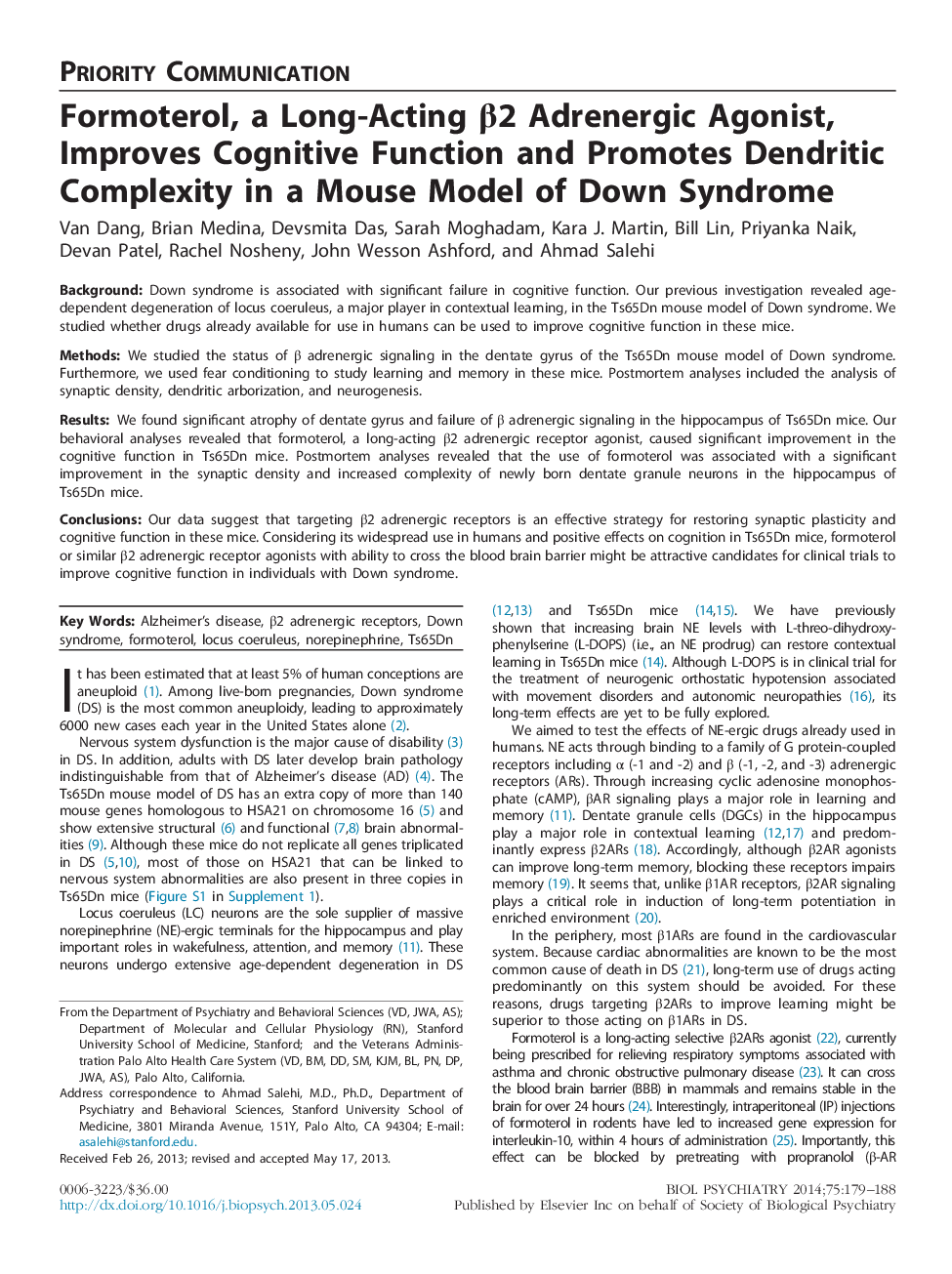| کد مقاله | کد نشریه | سال انتشار | مقاله انگلیسی | نسخه تمام متن |
|---|---|---|---|---|
| 4177529 | 1276430 | 2014 | 10 صفحه PDF | دانلود رایگان |

BackgroundDown syndrome is associated with significant failure in cognitive function. Our previous investigation revealed age-dependent degeneration of locus coeruleus, a major player in contextual learning, in the Ts65Dn mouse model of Down syndrome. We studied whether drugs already available for use in humans can be used to improve cognitive function in these mice.MethodsWe studied the status of β adrenergic signaling in the dentate gyrus of the Ts65Dn mouse model of Down syndrome. Furthermore, we used fear conditioning to study learning and memory in these mice. Postmortem analyses included the analysis of synaptic density, dendritic arborization, and neurogenesis.ResultsWe found significant atrophy of dentate gyrus and failure of β adrenergic signaling in the hippocampus of Ts65Dn mice. Our behavioral analyses revealed that formoterol, a long-acting β2 adrenergic receptor agonist, caused significant improvement in the cognitive function in Ts65Dn mice. Postmortem analyses revealed that the use of formoterol was associated with a significant improvement in the synaptic density and increased complexity of newly born dentate granule neurons in the hippocampus of Ts65Dn mice.ConclusionsOur data suggest that targeting β2 adrenergic receptors is an effective strategy for restoring synaptic plasticity and cognitive function in these mice. Considering its widespread use in humans and positive effects on cognition in Ts65Dn mice, formoterol or similar β2 adrenergic receptor agonists with ability to cross the blood brain barrier might be attractive candidates for clinical trials to improve cognitive function in individuals with Down syndrome.
Journal: Biological Psychiatry - Volume 75, Issue 3, 1 February 2014, Pages 179–188